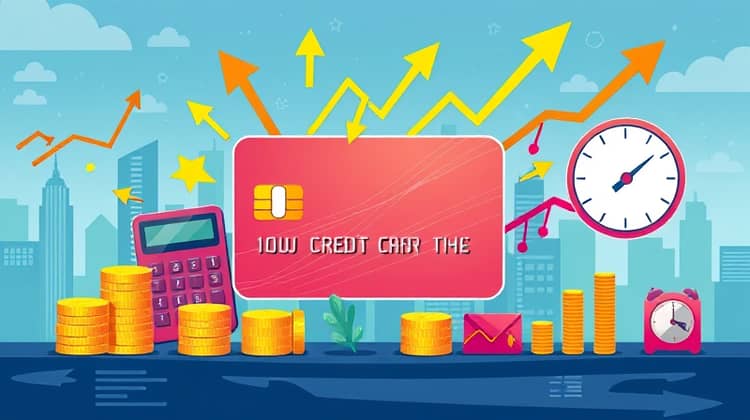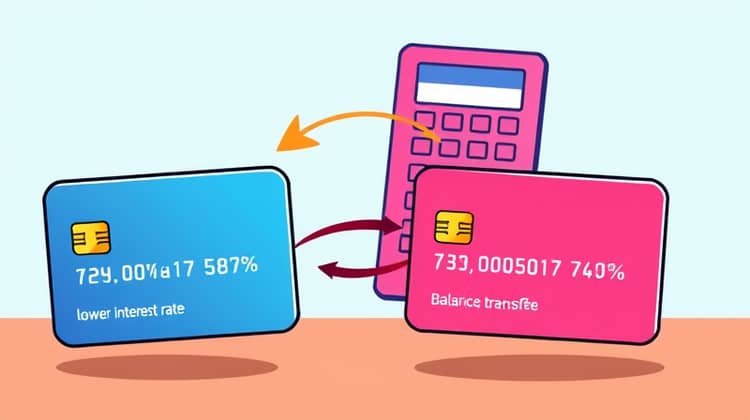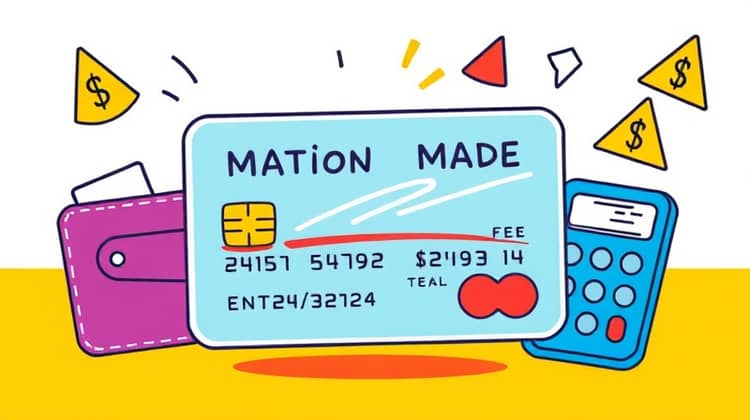Understanding credit card fees is essential for managing your finances effectively. Many people use credit cards for convenience, but not everyone is aware of the various fees that can accrue over time. By familiarizing yourself with these charges, you can make informed decisions about your credit card usage and avoid unexpected expenses.
Credit card fees can vary greatly from one issuer to another, and some may offer no annual fees or late payment fees. However, it is crucial to read the fine print and understand all applicable charges associated with your card. This knowledge empowers you to choose a card that aligns with your financial habits and needs.
In this article, we will break down common credit card fees and provide insights on how to manage them effectively. We will explore annual fees, interest rates, balance transfer fees, and more, helping you gain a comprehensive overview of what you might encounter as a credit cardholder.
1. Annual Fees

Annual fees are charges that some credit card issuers apply on a yearly basis for the privilege of using their card. Not all credit cards have annual fees, and they can range from modest amounts to several hundred dollars, depending on the card’s benefits and rewards structure.
Cards with annual fees often offer better perks than those without, such as higher rewards rates, travel benefits, or premium customer service. It’s crucial to assess whether the benefits outweigh the cost of the annual fee for your particular spending habits.
If you opt for a card with an annual fee, ensure that you take full advantage of its features to justify the expense. Review your spending, and check if you are utilizing rewards or benefits adequately to maximize your investment.
- Evaluate the benefits of the credit card against the cost of the annual fee.
- Consider your spending habits and determine if you can leverage rewards effectively.
- Look for alternatives that might offer no annual fees with sufficient rewards options.
Ultimately, the decision to choose a credit card with an annual fee should depend on individual financial strategies and goals. Having a clear understanding of what you gain versus what you pay can help guide your choice.
2. Interest Rates

Interest rates, or APRs (Annual Percentage Rates), are among the most significant fees associated with credit cards. They determine how much interest you will pay on the outstanding balance each month, and can vary based on creditworthiness and market conditions.
When you carry a balance on your credit card, interest is charged based on the APR applicable to your account. This can accumulate quickly, leading to substantial debt over time. Understanding how interest rates work helps you manage your payments effectively and avoid high-interest charges.
Some credit cards offer introductory 0% APR periods as incentives, but it's essential to know the standard rate that will apply once the introductory period ends. Always compare the APRs of different credit cards when choosing one.”],
- Check the advertised APR and factor it into your decision-making process.
- Consider a card with a lower variable interest rate if you plan to carry a balance.
- Look for special offers with 0% introductory APR to minimize costs if planning a major purchase.
Monitoring your spending and making timely payments can help you minimize the effects of high interest rates, enabling you to keep more of your money in your pocket.
3. Balance Transfer Fees

Balance transfer fees come into play when you transfer debt from one credit card to another. This fee is typically a percentage of the amount transferred, often ranging from 3% to 5%.
While it may seem beneficial to move your balance to a card with a lower interest rate, it's important to consider the transfer fee, as it can somewhat offset the savings gained from a lower APR.
Before proceeding with a balance transfer, it is wise to calculate the total cost, including the fees, to ensure it will save you money in the long run.
- Usually between 3% to 5% of the transferred balance.
- Can negate potential savings of lower interest rates.
- Evaluate your overall credit situation before deciding.
In conclusion, balance transfer fees can impact the overall financial advantage of debt management. A meticulous calculation can help you make an informed decision that fits your financial recovery strategy.
4. Cash Advance Fees

Cash advance fees are charged when you withdraw cash using your credit card. This is usually done at an ATM or bank, and typically results in a transaction fee, as well as a higher interest rate on the amount withdrawn.
The fee can vary widely but often ranges from 3% to 5% of the advance amount. Additionally, interest on cash advances usually starts accumulating immediately, unlike purchases that may offer grace periods.
Using credit cards for cash advances is generally not advisable due to these fees and high-interest rates. It's essential to explore other financing options if you find yourself in need of cash.
- Transaction fees may apply of about 3% to 5% per advance.
- Higher interest rates than regular purchases.
- Interest begins accruing immediately without a grace period.
In summary, cash advances can be a costly option if you're in need of quick cash. It's best to carefully assess whether this option is necessary or if there are better alternatives available.
5. Foreign Transaction Fees

Foreign transaction fees are applied when you make purchases in a foreign currency or while traveling outside of your home country. These fees typically amount to about 1% to 3% of the transaction and can add up quickly during international travel.
Many credit cards charge these fees to convert foreign currency transactions through their payment processes. However, some cards are designed specifically for travelers and waive these fees entirely, making them a better option for frequent travelers.
When planning travel, consider the total cost of using your credit card overseas, including foreign transaction fees, to ensure you do not overspend without realizing it.
- Typically between 1% to 3% of the transaction amount.
- May vary by cardholder's financial institution.
- Look for cards that offer no foreign transaction fees.
Overall, being mindful of foreign transaction fees when using your credit card abroad can enhance your travel experience and budget adherence. Seek cards that offer no exchange fees if you travel frequently, saving you money on each purchase.
6. Late Payment Fees

Late payment fees are charged when you fail to make a minimum payment on your credit card by the due date. These fees can be steep, often ranging from $25 to $40, depending on your card issuer's policies.
Aside from the immediate financial penalty, late payments can also damage your credit score. Therefore, it is crucial to pay attention to payment due dates and set reminders to avoid incurring these fees.
Some credit card companies may waive the first late payment fee as a courtesy, especially for new customers, but it's important not to rely on this.
- Set up alerts for due dates to avoid forgetting payments.
- Consider setting up automatic payments for at least the minimum amount due.
- Stay aware of any promotional offers for a first-time late waiver.
Ultimately, understanding and avoiding late payment fees is key to maintaining healthy credit card usage. Create a payment strategy that keeps you on top of your finances and minimizes unnecessary charges.
7. Over-the-Limit Fees

Over-the-limit fees apply when your credit card balance exceeds the credit limit set by your issuer. While the Credit Card Accountability, Responsibility, and Disclosure (CARD) Act of 2009 requires cardholders to opt-in for over-the-limit protection, fees are still commonly associated with exceeding limits.
Typically, the fee can be around $25 to $35, and it may lead to a higher APR as well. It's essential to understand your credit limit and manage your expenses accordingly to avoid these unnecessary fees.
Keeping track of your spending and maintaining a buffer below your limit is a straightforward way to steer clear of over-the-limit fees.
- Know your credit limit and keep track of your spending.
- Avoid opting in for over-the-limit coverage unless necessary.
- Check if your issuer allows you to set alerts when nearing your credit limit.
In conclusion, staying aware of your credit limit and being disciplined with your spending can effectively prevent over-the-limit fees, promoting healthier credit card utilization.
8. Returned Payment Fees

Returned payment fees are incurred when a payment made on your credit card cannot be processed, which may happen for reasons such as insufficient funds or a closed account. This fee typically ranges from $25 to $35, depending on your card issuer.
These fees can quickly accumulate if you frequently encounter issues with your payment method and can further complicate your credit situation. It's important to rectify payment issues swiftly to avoid going into deeper debt.
Additionally, repeated returned payments can hurt your credit score, so addressing any underlying financial problems is essential to avoid further consequences.
- Ensure sufficient funds before scheduling payments.
- Monitor your account closely and address payment issues promptly.
- Consider switching to a more reliable payment method if issues persist.
In summary, returned payment fees are a financial burden that can be avoided through careful account management. Keeping a close eye on your finances and ensuring smooth payment processing keeps your credit card experience as positive as possible. Moreover, addressing any complications efficiently can prevent larger issues down the line.














